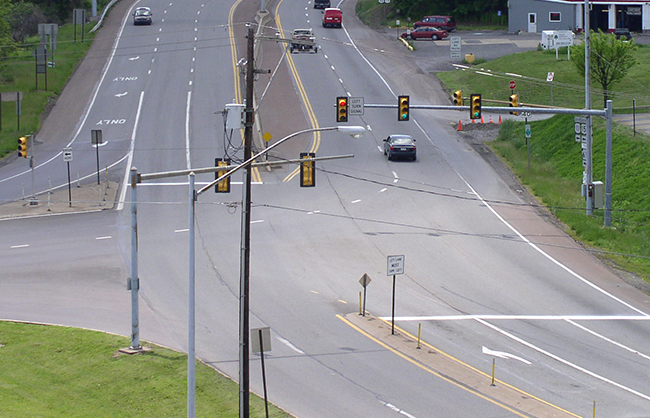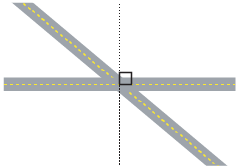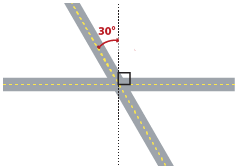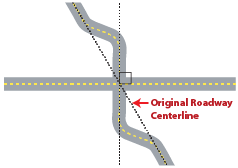Types of Intersections
The number of intersecting legs, or the number of roads that will join to form an intersection, determines the type of intersection. The basic intersection types are three-leg, four-leg, multileg, and roundabouts.
Three- and Four-Legged Intersections

An example of a three-legged intersection is a T-type intersection, which is used to terminate one road. Four-legged intersections are crossroads where two roads meet, usually at a right angle. Try to avoid skewed intersections because they create problems with visibility, turning angles, and pedestrian crossings.
Skewed Intersections
Avoid

Acceptable

Preferred

Where skewed intersections must be used, the skew should be no more than 30 degrees off perpendicular; otherwise realign the roadway(s) to form a perpendicular intersection. AASHTO's A Policy on Geometric Design of Highways and Streets, commonly known as the "Green Book," has several more realignment options.


